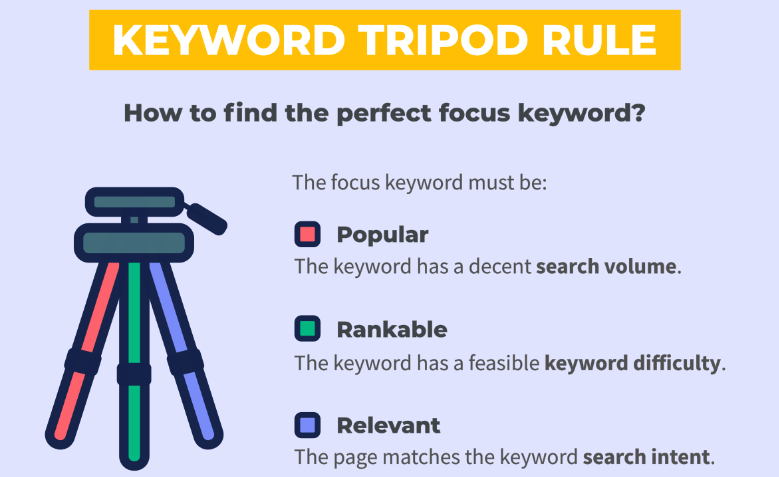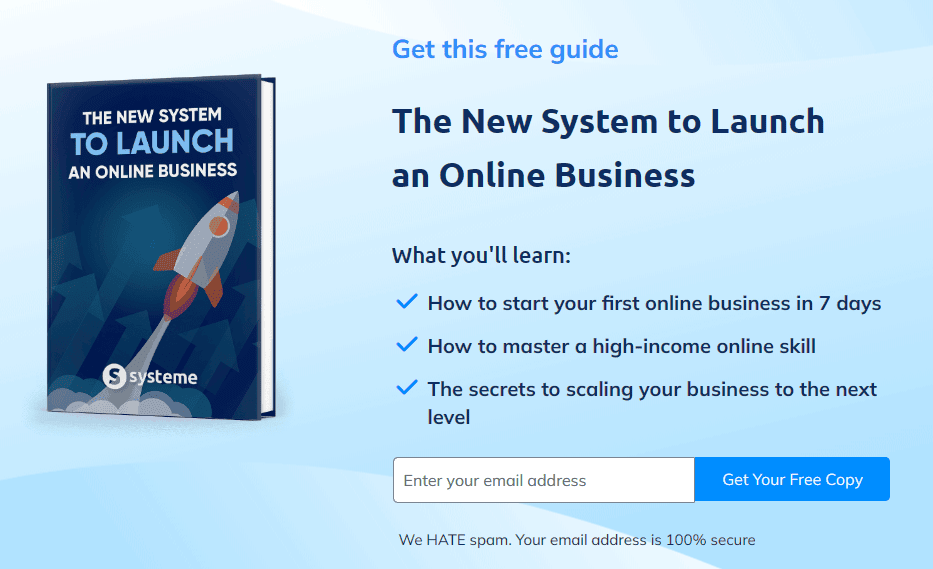I always wondered how I could succeed in any online marketing strategy. I found the answer in a keyword research guide such as this one. First, you must learn the basics of keyword research. Niche keyword research is the cornerstone of any successful SEO strategy. You should understand what your audiences are searching for so that you can create content that truly resonates with them.
This guide will unveil effective basics of keyword research techniques for uncovering valuable keywords. It contains the best software for keyword research that can simplify your research process. You’ll also get tips for analyzing your findings. It’ll help you discover how to make keyword research work for you and boost your visibility in this ever-competitive online space.
Introduction
Why Keyword Research Will Still Rule In 2025
The Power of Strategic Keyword Targeting
You should definitely target the right keywords for you to emerge on page one of the search engines.
Basic keyword research can make the difference between being on page one or lost in the depths of search results (SERPs).
You must strategically select competitive keywords to optimize for search engines and for your subscribers to find your content.

The Ever-Evolving SEO Landscape
The online marketplace in digital marketing is constantly changing. Search engines are regularly updating their algorithms.
Effective local SEO keyword research is more crucial than ever, so if you want to succeed in the digital marketing space, you will naturally need to be top-notch. This is one of the key basics of keyword research.
You must identify with the latest trends that will allow you to adjust your strategy and remain relevant.
Other than SEO, in the social media marketing world, visibility and brand awareness are the key pillars of a successful digital marketing business. Social media is everything these days when it comes to advertisement and making money online.
Setting the Stage for Success
You should use keyword research tools to lay the groundwork for your SEO success. The keyword tools will help with your content creation, improve your site’s visibility, and directly impact conversions and traffic.
Understanding Search Intent: Beyond Keywords
Basics of Keyword Research: Defining User Needs and Motivations
You should understand the search intent—the reason behind a user’s search.
What are they searching for and why?
It is essential to understand why people search for certain niche keywords, as it will help you create
content that fulfills those needs.
Aligning Keywords with User Goals
You should always strive to provide real value by aligning your content with user intent.
This alignment will instantly increase engagement and ensure that visitors find exactly what they are looking for.
Examples of Different Search Intents
- Informational: Users seek knowledge. (e.g., “How to create a website“)
- Transactional: Users are ready to make a purchase. (e.g., “buy running shoes online”)
- Navigational: They want to reach a specific site. (e.g., “Redbubble shop”)
Keyword Research Tools and Techniques: A Deep Dive
Basics of Keyword Research: Utilizing Free and Paid Keyword Research Tools
There are many tools that facilitate keyword research for free. Some of the best keyword research tools include:
- TubeBuddy keyword research: competitive bulk YouTube editing tool
- VidIQ keyword research tool: Best tool to find new video ideas
- Mangools: good for long-tail keywords with low SEO difficulty
- SEMrush: Comprehensive analytics and insights.
- Ahrefs: Great for backlink analysis.
- Google Keyword Research tool: Ideal for finding keywords relevant to your niche.

Mastering Keyword Research Methodologies
The trick is to do competitive keyword research and analysis to find out which keywords you can out-rank your competitors with:
- Competitor Keyword Analysis: Investigate what keywords competitors are ranking for and adjust.
- Topic Clusters: Organize keywords around a central topic to improve your site’s relevance and structure.
Long-Tail Keywords: What They Are and Why They Matter

Long-tail keywords are specific, multi-word phrases that target niche audiences searching for particular information, products, or services. They are usually longer and more niche-specific.
They often have lower search volumes but can attract highly targeted niche traffic. This is because they cater to users further along in the buying cycles that are looking for exact matches to their queries.
Example: Instead of searching for “marketing,” try “best digital marketing tools.” Or instead of “keyword tools,” you should search for ”best keyword research tools.”
Use long-tail keywords in your SEO strategy to improve the relevance of your content and also enhance visibility on search engines.
This will ultimately drive more qualified traffic and foster better engagement with potential customers.
Keyword Mapping and Organization: Streamlining Your SEO Strategy
Basics of keyword research: Creating a Comprehensive Keyword Map
Create a comprehensive keyword map, which is an essential step in understanding how different keywords connect with the content on your website.
This will serve as a visual representation of this relationship, allowing you to see which keywords relate to each specific page. Conduct local SEO keyword research.
Do this to ensure that each page of your website is optimized to target a unique set of keywords. This will prevent the overlap that can confuse search engines and dilute your overall SEO efforts.
Try to maintain a clear structure to help improve your site’s visibility and performance in search engine results pages (SERPs).
Categorizing Keywords by Relevance and Search Intent
It is important for you to categorize keywords by relevance and search intent to effectively utilize your keyword map.
Study their intentions behind their searches and organize keywords into different groups based on their relationship to your content.
By doing so, you’ll be simplifying the process of creating targeted content that resonates with the diverse needs and queries of users. There are different types of search intent, such as transactional, informational, and navigational, among others.
You can get more information from keyword research for beginners’ guides.
When you match your content to these specific intents, you stand a high chance of ranking well for those terms, thus attracting more traffic to your site.
Prioritizing Keywords for Maximum Impact

To effectively optimize your site, you should prioritize niche keywords for maximum impact.
Start by identifying high-traffic keywords that hold relevance to your audience and align with your business goals.
However, it is essential to focus primarily on those keywords that show lower competition whilst still promising significant search volume. Use this strategic approach to compete more effectively in your industry.
Targeting these keywords will give you a better chance to rank higher in search page results and attract precious organic traffic.
Concentrate your efforts on the most impactful keywords to enhance your overall SEO strategy and drive better results for your online presence.
Content Optimization and Keyword Integration: Best Practices
Natural Keyword Integration
Use natural keyword integration, a crucial aspect of search engine optimization. Try as much as possible to avoid the common hazard of keyword stuffing, which is the practice of excessively using keywords in a way that disrupts the natural flow of the text. It should feel smooth, free-flowing, organic, not forced.
Keyword stuffing can lead to heavy penalties from search engines, ultimately harming your website’s visibility, especially if you are a beginner in keyword research.
Instead, focus on weaving keywords seamlessly into the content. This means that the keywords should appear in a way that feels smooth and natural, making the text easy to read and understand.
When done right, the keywords will enhance the content without making it feel out of place.
On-Page Optimization Techniques
Make sure you optimize the following to improve search engine rankings:
- Title Tags: Prominently feature your primary keywords to help search engines understand the main topic of your page.
- Meta Descriptions: Summarize the content effectively while incorporating your keywords to entice customers to click through to your site.
- Header Tags: Use H1, H2, H3, etc., tags in the headings, flowing strategically for better clarity to help both the customer and search engines read the content easily.
Keyword Research, Competitive Analysis, and Iterating
Keyword research competitive analysis is too important to ignore. This is a necessary step in maintaining an effective SEO strategy.
It is important to regularly review how well your keywords are performing in search engine results.
If certain keywords show weak performance or do not attract traffic as expected, it is critical to adjust your strategy accordingly.
This may involve focusing on new keywords that are more relevant or popular within your target audience. Additionally, keep refreshing older content to help in improving its visibility and effectiveness.
Finally, make sure that your SEO efforts remain robust and aligned with current trends by regular evaluations and updates on your content.
READ RELATED: Keyword Research for Beginners: New Marketer’s Guide to Keyword Secrets
Evaluate Results and Refine Your Approach
Tracking Keyword Rankings and Website Traffic
This is crucial for understanding how well your online content is performing.
Employ various analytic tools to keep a close eye on how specific niche keywords influence your website’s position in search engine results and the amount of traffic your site receives over time.
This ongoing analysis will allow you to spot important trends and discover areas that need prompt improvement.
For instance, if you notice a drop in traffic associated with certain keywords, you can take steps to adjust your strategy accordingly.
Analysing User Behavior and Engagement metrics

Analyze user behavior and engagement metrics to assess the effectiveness of your content.
It is important to monitor how visitors interact with your website. If a significant number of visitors leave your site quickly after arriving, it may indicate that your content does not align with their expectations or needs.
Try to understand these patterns to give you valuable insights into what changes are necessary to keep users engaged and interested in your offers.
A/B Testing Different Keyword Strategies
A/B testing different keyword strategies is an effective method to enhance website performance.
Experiment with different keywords to determine which ones are most successful in attracting guests and converting them into customers.
A/B testing involves comparing different versions of your content, each featuring distinct keywords, to see which one yields better results in terms of traffic and conversions.
This approach will allow you to refine your keyword strategy based on real data, ultimately leading to improved online visibility and increased user engagement.
Conclusion
Mastering Keyword Research for Long-Term SEO Success
Key Takeaways and Actionable Steps
- Focus on understanding customer search intent.
- Utilize the right keyword research tools for SEO.
- Continuously evaluate and refine your keyword strategies.
The Ongoing Nature of Keyword Research
Searching keyword research is not a task that can be completed just once and then forgotten. It is a continuous process that requires regular updates and adjustments.
As consumer interests change and new trends emerge, the effectiveness of previously identified keywords can shrink. This means that to maintain strong visibility in search engine results, you must revisit and refine keyword strategies periodically.
You should monitor seasonal shifts, industry trends, and changes in popular culture to grasp valuable insights that inform keyword choice.
At the same time, consistently review and update keywords, to stay relevant and competitive in an ever-changing digital market.
This proactive approach will ensure that content remains aligned with current search behaviors, ultimately driving better engagement and traffic to your website. Therefore, ongoing keyword research is a must for long-term success.
Future-Proofing Your SEO Strategy
Stay flexible and willing to adapt. Keep learning and experimenting to ensure your keyword research aligns with the ever-changing SEO landscape.
Effective basics of keyword research leads to meaningful traffic and greater online visibility. Follow these principles and unlock the secrets to better keyword strategies and achieve long-term SEO success in your business.











